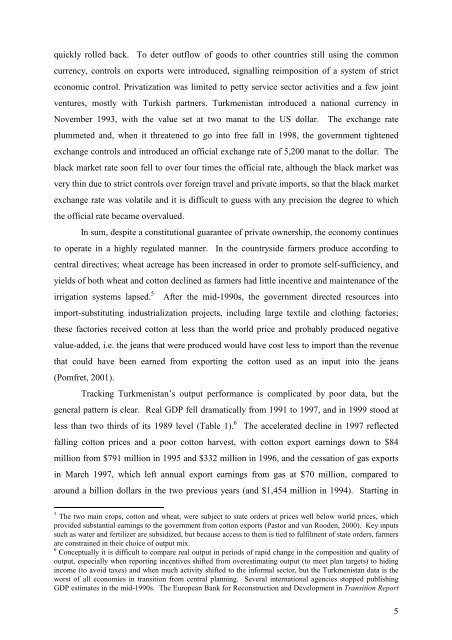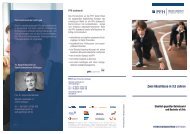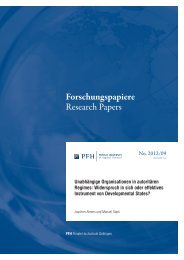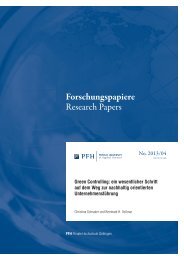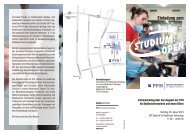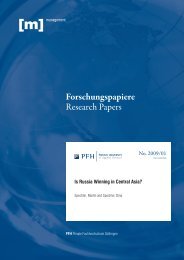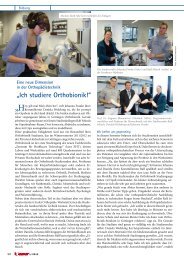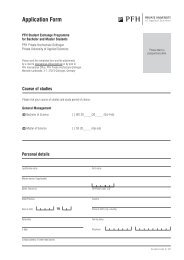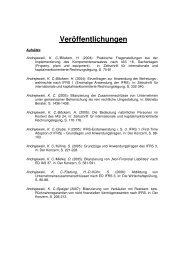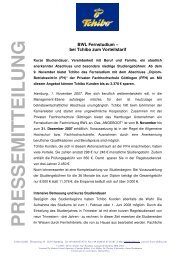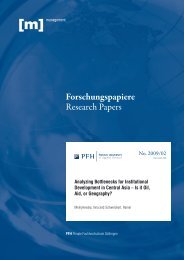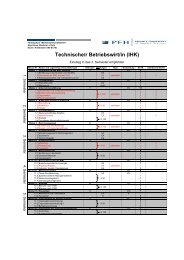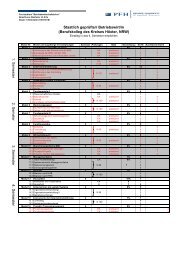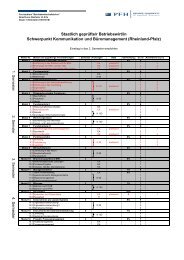Forschungspapiere Research Papers - PFH Private Hochschule ...
Forschungspapiere Research Papers - PFH Private Hochschule ...
Forschungspapiere Research Papers - PFH Private Hochschule ...
Create successful ePaper yourself
Turn your PDF publications into a flip-book with our unique Google optimized e-Paper software.
quickly rolled back. To deter outflow of goods to other countries still using the common<br />
currency, controls on exports were introduced, signalling reimposition of a system of strict<br />
economic control. Privatization was limited to petty service sector activities and a few joint<br />
ventures, mostly with Turkish partners. Turkmenistan introduced a national currency in<br />
November 1993, with the value set at two manat to the US dollar. The exchange rate<br />
plummeted and, when it threatened to go into free fall in 1998, the government tightened<br />
exchange controls and introduced an official exchange rate of 5,200 manat to the dollar. The<br />
black market rate soon fell to over four times the official rate, although the black market was<br />
very thin due to strict controls over foreign travel and private imports, so that the black market<br />
exchange rate was volatile and it is difficult to guess with any precision the degree to which<br />
the official rate became overvalued.<br />
In sum, despite a constitutional guarantee of private ownership, the economy continues<br />
to operate in a highly regulated manner. In the countryside farmers produce according to<br />
central directives; wheat acreage has been increased in order to promote self-sufficiency, and<br />
yields of both wheat and cotton declined as farmers had little incentive and maintenance of the<br />
irrigation systems lapsed. 5 After the mid-1990s, the government directed resources into<br />
import-substituting industrialization projects, including large textile and clothing factories;<br />
these factories received cotton at less than the world price and probably produced negative<br />
value-added, i.e. the jeans that were produced would have cost less to import than the revenue<br />
that could have been earned from exporting the cotton used as an input into the jeans<br />
(Pomfret, 2001).<br />
Tracking Turkmenistan’s output performance is complicated by poor data, but the<br />
general pattern is clear. Real GDP fell dramatically from 1991 to 1997, and in 1999 stood at<br />
less than two thirds of its 1989 level (Table 1). 6 The accelerated decline in 1997 reflected<br />
falling cotton prices and a poor cotton harvest, with cotton export earnings down to $84<br />
million from $791 million in 1995 and $332 million in 1996, and the cessation of gas exports<br />
in March 1997, which left annual export earnings from gas at $70 million, compared to<br />
around a billion dollars in the two previous years (and $1,454 million in 1994). Starting in<br />
5 The two main crops, cotton and wheat, were subject to state orders at prices well below world prices, which<br />
provided substantial earnings to the government from cotton exports (Pastor and van Rooden, 2000). Key inputs<br />
such as water and fertilizer are subsidized, but because access to them is tied to fulfilment of state orders, farmers<br />
are constrained in their choice of output mix.<br />
6 Conceptually it is difficult to compare real output in periods of rapid change in the composition and quality of<br />
output, especially when reporting incentives shifted from overestimating output (to meet plan targets) to hiding<br />
income (to avoid taxes) and when much activity shifted to the informal sector, but the Turkmenistan data is the<br />
worst of all economies in transition from central planning. Several international agencies stopped publishing<br />
GDP estimates in the mid-1990s. The European Bank for Reconstruction and Development in Transition Report<br />
5


